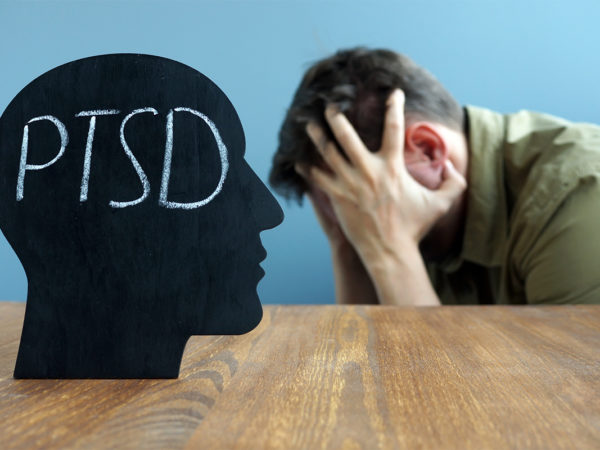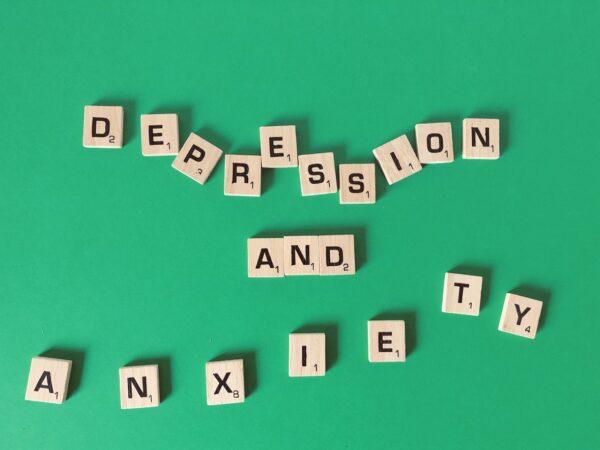Post-Traumatic Stress Disorder (PTSD)
Post-Traumatic Stress Disorder (PTSD) is a mental health condition that can develop after a person experiences or witnesses a traumatic event. Initially, many people may have upsetting memories, feel on edge, or have trouble sleeping following a traumatic event. While these symptoms often improve over time, some individuals continue to experience severe symptoms that interfere with daily life, leading to a diagnosis of PTSD.
Symptoms of PTSD:
PTSD symptoms generally start shortly after the traumatic event, but sometimes they don’t appear until months or years later. Symptoms may also wax and wane over many years. The symptoms of PTSD are generally grouped into four types:
Re-experiencing (Intrusive Memories):
- Flashbacks, or reliving the traumatic event as if it were happening again
- Upsetting dreams or nightmares about the traumatic event
- Severe emotional distress or physical reactions to reminders of the trauma
Avoidance:
- Avoiding places, activities, or people that remind you of the traumatic event
- Trying to avoid thinking or talking about the traumatic event
Negative Changes in Thoughts and Mood:
- Negative thoughts about yourself, other people, or the world
- Hopelessness about the future
- Memory problems, including not remembering important aspects of the traumatic event
- Difficulty maintaining close relationships
- Feeling detached from family and friends
- Lack of interest in activities you once enjoyed
- Difficulty experiencing positive emotions
Changes in Physical and Emotional Reactions (Hyperarousal):
- Being easily startled or frightened
- Always being on guard for danger
- Self-destructive behavior, such as drinking too much or driving too fast
- Trouble sleeping
- Trouble concentrating
- Irritability, angry outbursts, or aggressive behavior
- Overwhelming guilt or shame
Diagnosis of PTSD:
Diagnosing PTSD involves a comprehensive assessment by a mental health clinician, which includes a detailed discussion of symptoms and their impact on daily life, neuropsychological evaluations to understand the severity and nature of the symptoms, and a review of the individual’s history, including the traumatic event and any previous mental health issues.
Treatment and Support for PTSD:
- Trauma-Focused Psychotherapy: Includes cognitive-behavioral therapy (CBT), prolonged exposure therapy, and eye movement desensitization and reprocessing (EMDR) to help process and manage traumatic memories.
- Neurofeedback: A type of biofeedback that uses real-time monitoring of brain activity, teaches self-regulation of brain function. For this client, neurofeedback could potentially reduce PTSD symptoms by helping them gain better control over their brain’s activity patterns, thereby decreasing the intensity and frequency of intrusive thoughts, hyperarousal, and other PTSD-related symptoms.
- Lifestyle Changes: Incorporating healthy habits such as regular exercise, a balanced diet, adequate sleep, and mindfulness practices to improve overall well-being.
If you or a loved one is experiencing difficulties related to PTSD, please contact us to schedule an appointment or learn more about our treatment options.
INSIGHTS AND NEWS
Posts About PTSD
How Can I Improve My Sleep?
November 8, 2023 Blog
Sleep is not just a period of rest; it is a fundamental aspect of our overall...
The Pandemic & Post Traumatic Stress Disorder
May 18, 2021 Blog
Post-traumatic Stress Disorder (PTSD) occurs when a person has difficulty...
What Is The Link Between Depression And Anxiety?
February 28, 2021 Blog
Depression and anxiety are thick as thieves. Anxiety disorders are the most...
TESTIMONIALS
What Clients Say
“This place is amazing our son (6 at the time) was having problems at school. Thanks to their advice our son (now almost 8) is doing SO much better. I would recommend this place to anyone even considering an assessment for their child!”
J.B.
Parent
“The tests Dr. Goldstein used were very accurate in determining the correct concerns, plus he provided excellent advice on tools and resources in moving forward. Five Stars all the way!”
E.H.
Parent
“Our teacher suggested that we test our 8 year-old and we could not be happier with the process, the staff and the outcome. This was one of the best things we could have done for our daughter.”
P.B.
Parent
“Dr. Goldstein and his staff are very professional, patient and understanding about the entire process. Our family is very grateful to have found and highly recommend Cognitive Solutions Learning Center!”
L.M.
Parent
“Dr. Goldstein and the staff at Cognitive Solutions was the best. Dr Goldstein helped my son through the extensive testing, identify and explain his learning disability, along with giving him hope for a brighter future! Thank you.”
H.P.
Parent
“After observing my son demonstrating disruptive behavior, I was advised to take him to CSLC for testing. They were able to identify issues and offer realistic strategies to put him on the path to success.“
C.J.
Parent
“We have been patients of Cognitive Solutions for years. The evaluations are thorough without taking too much away from school. We would recommend for evaluations we well as learning specialist needs.”
M.B.
Parent




